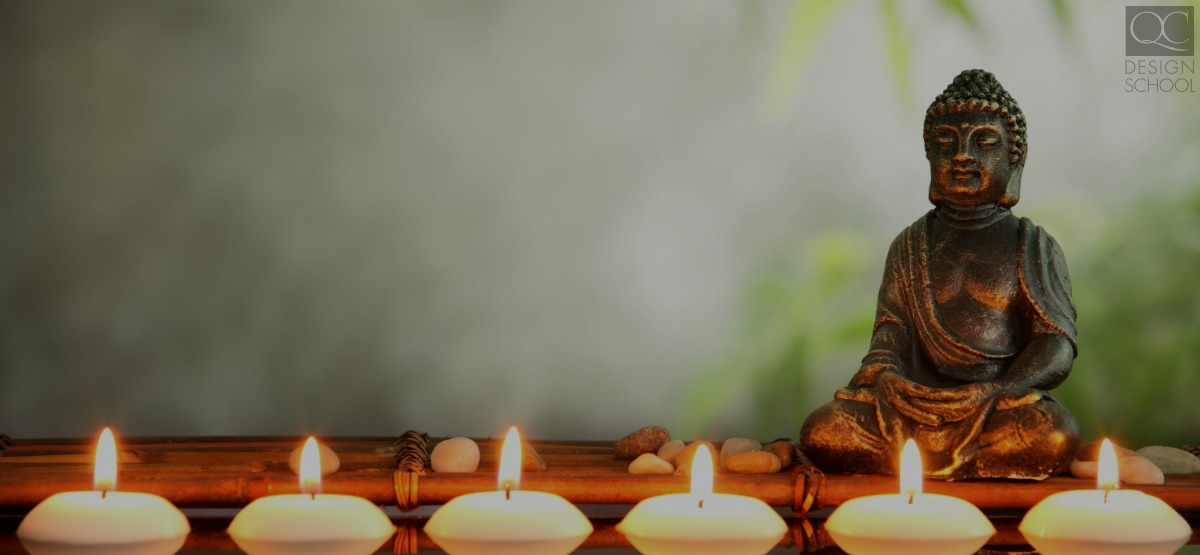Every homeowner can agree that their living space should be harmonious and happy. After all, it’s where they come to relax and reset! This idea of keeping positive energy inside the home forms the basis of feng shui, an ancient Chinese philosophy that has become immensely popular with homeowners who wish to improve their lives through a series of simple – yet calculated – steps.
So where do you start when it comes to feng shui room design? Don’t worry – we’ve put together a guide that will take all rooms in your clients’ home into account and demonstrate how positive energy can be promoted in every space, no matter how large or small!
Entrance
Just as people enter a home through the front door, so does energy, or “Chi”, as it’s known in feng shui. Defined as invisible energy that binds life together, Chi flows through the home and can be strong or weak. This sounds quite easy, doesn’t it? The front door opens, and energy is swept into the home, bringing positivity and harmony into the house. However, it’s more complicated than that…
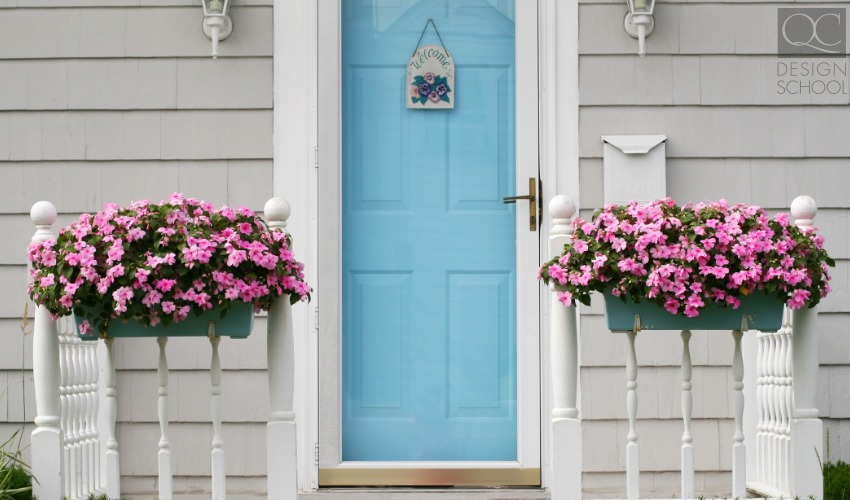
First and foremost, you want to ensure that the front door and back door are not in direct alignment. This is a feng shui disaster! The good and strong energy that flows through the front door will not stay in the home if the back door is easily accessible. It will flow in, of course, but quickly escape out the back door – destroying the entire feng shui atmosphere in seconds.
As a home decorator, you really don’t want this to happen, as it prevents good Chi from staying within the space. If at all possible, make sure the front and back doors are in different areas and don’t face one another. This is an example of a good feng shui design for your entrance.
Another way to absorb better Chi in the entrance of your client’s home is by choosing colors and shapes carefully when it comes to rugs. Consider the direction that the front door faces, and then choose shapes and colors that reflect feng shui elements (wood, fire, metal, earth and water). Making careful choices, such as the alignment of the doors and the rug, will ensure that positive energy can circulate within the space and improve your client’s lives.
Living room
When it comes to feng shui room design, the living room is one of the most important areas in the home. The great news is that there are many ways to employ feng shui in this space – decluttering, adding soft lighting, and knowing how to properly place furniture are just some ways of doing so.
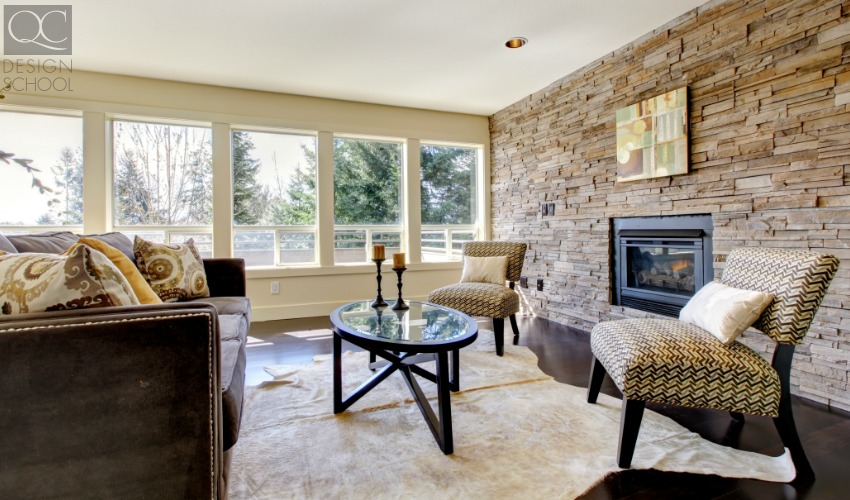
One of the easiest ways to ensure that your clients live harmoniously in their living room is to ensure that the room is comfortable. If they have enough space to move around when walking and if they’re able to sit comfortably, this will make a colossal difference in how they feel about the space. Comfort is something that can be achieved quite simply as well – using small tables and chairs is a great place to start!
It’s also important to keep guests in mind, as your clients will want friends and family members to be comfortable when they’re entertaining. Guests will need room to breathe, and space is an essential element of feng shui design! Facing chairs slightly towards each other will keep conversation flowing, although they should not be faced dead-on. Use the sofa as the focal point of the room, and surround it with the rest of the furniture for the best possible setup.
Kitchen
Next to the living room, the kitchen is one of the most important rooms in the home for feng shui. Let’s face it – your clients will spend a good part of their lives in the kitchen eating, preparing food, and socializing. By no means should it be a room that causes stress and unhappiness, and doesn’t allow Chi to flow through freely.
This is where the feng shui elements come into play once again! The stove represents the fire element of feng shui, and as such, it should be placed in a south or southwest direction. The stove is an incredibly important appliance in the home, as anything used for cooking should be placed in a strong position in order to give food the best energy. This placement is determined through the feng shui bagua map, which is a helpful tool that should be used before making any changes to the rooms in the home. For a rundown on each element and how it can be useful, visit HGTV’s The Elements of Feng Shui.
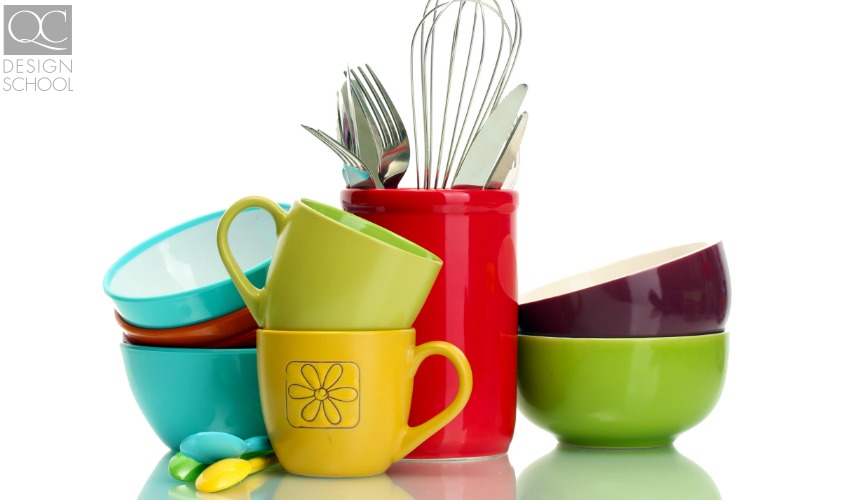
Kitchen plates in shades of red, orange and yellow will promote hunger, while blue is a great color for dishes if your client is watching their waistline. Being mindful of these small details will ensure that the feng shui design in your client’s kitchen allows them to live their best life.
Bedroom
Ah, the bedroom. It’s where your clients refresh, relax and energize, so feng shui in bedroom designs must be taken very seriously. There is one golden rule when it comes to feng shui in this space, and that is to ensure that the bed is not placed underneath the window.
You may question this rule, as it often makes the most sense to place a bed under a window – perhaps the room looks larger with the bed placed there, or less cluttered. But trust us, this will weaken the energy within the space very quickly, leaving your client feeling exhausted and stressed. And who wants to feel exhausted when they wake up each day?
Another way to keep a peaceful atmosphere in the bedroom is to paint the walls in calm colors, as your client will be seeking a tranquil environment in which to unwind at the end of a busy day. Positive Chi can be easily accomplished in the bedroom – and with great results. All it takes is attention to detail and proper furniture placement, and your client will be feeling their very best each morning.
Bathroom
One of the most basic actions performed in the bathroom actually has the potential to destroy the positive Chi in your client’s home! The act of flushing is destructive, although it’s a necessity. One way to prevent energy from flowing into the bathroom in the first place is to always keep both the door and toilet lid closed. The space should be kept clean and fresh at all times, with as much sunlight (or other light) coming in as possible.
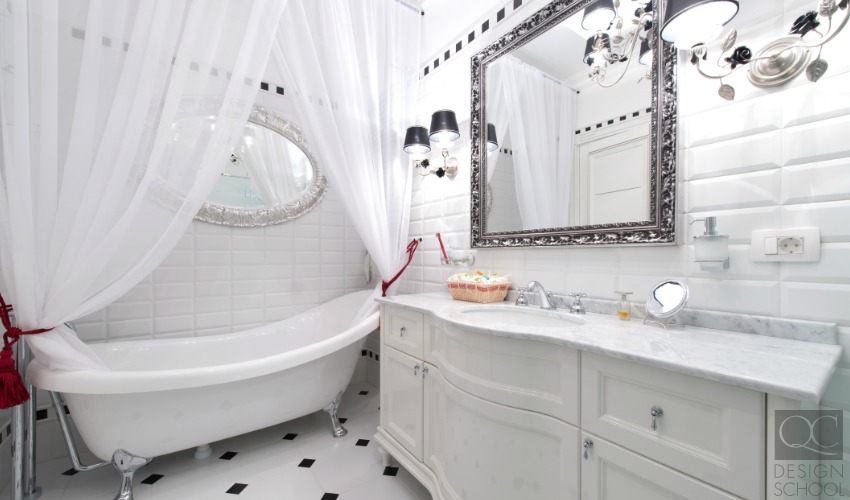
These tips go without saying (and apply to every bathroom, feng shui or not), but broken items should be replaced immediately, and worn-out, old toothbrushes disposed of as soon as they start to show signs of wear. The positive energy your clients desire is found in fresh, bright, and functional bathrooms that promote happiness and well-being, so encourage them to stay on top of any repairs or items that need replacing.
Every room in the home needs special care when it comes to feng shui, but being mindful of seemingly small details and ensuring the right light, furniture, and colors are put to use is crucial in allowing your client to live their best life. Feng shui room design can be easily accomplished and maintained by your clients once they understand the specific elements and bagua map.
